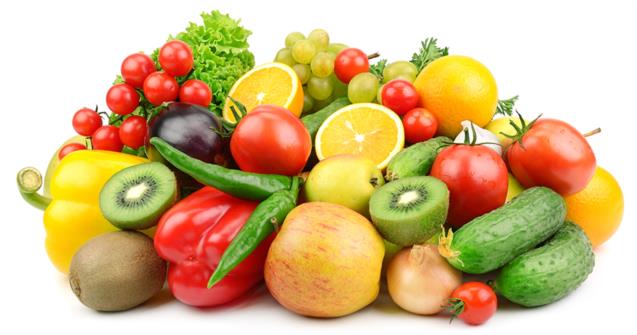
Atepa Group is committed to promoting Food Self-Sufficiency through innovative agricultural practices, strategic investments, and community-focused initiatives. Our efforts aim to enhance local food production, support sustainable farming practices, and reduce reliance on external food sources, contributing to long-term food security and resilience.
Food self-sufficiency is a critical goal for any nation, aiming to ensure that a country can produce enough food to meet the nutritional needs of its population without relying heavily on imports. Achieving food self-sufficiency involves a multifaceted approach, including improving agricultural practices, investing in technology, and developing resilient food systems. Here is an overview of the key strategies and benefits associated with food self-sufficiency.
Enhancing Agricultural Productivity
Adoption of modern farming techniques such as precision agriculture, which uses technology to optimize field-level management regarding crop farming.
Encouraging the cultivation of a variety of crops to reduce dependency on a single crop and to improve soil health.
Use of high-yield, drought-resistant seed varieties and effective fertilizers to boost crop production.
Development and implementation of efficient irrigation systems to ensure water availability during dry periods.
Introduction of agricultural machinery to increase efficiency and reduce labor costs.
nvestment in R&D to develop new farming techniques, pest-resistant crops, and sustainable practices.
Promoting organic farming practices to ensure long-term soil fertility and reduce environmental impact.
Integrating trees and shrubs into agricultural landscapes to improve biodiversity, reduce erosion, and enhance soil health.
Implementing practices like no-till farming, crop rotation, and cover cropping to maintain healthy soil ecosystems.
Improving rural infrastructure, including roads, storage facilities, and markets, to facilitate the efficient distribution of food products.
Developing local food processing industries to add value to agricultural produce and reduce post-harvest losses.
Enhancing supply chain logistics to ensure timely delivery of food products from farms to consumers.
Implementing supportive policies that provide subsidies, financial assistance, and technical support to farmers.
Ensuring equitable access to land and resources for smallholder farmers.
Providing training programs for farmers to adopt new techniques and improve their farming practices.
Lowering dependency on food imports can save foreign exchange and reduce trade deficits.
Boosting the agricultural sector creates employment opportunities, especially in rural areas.
Stable domestic food production can help control food prices and reduce inflation.
Ensuring a steady supply of food products to meet the nutritional needs of the population.
Enhancing the ability to withstand and recover from food supply disruptions caused by global market fluctuations, natural disasters, or pandemics.
Sustainable farming practices contribute to better management of natural resources such as soil, water, and biodiversity.
Local food production minimizes the carbon emissions associated with long-distance transportation of food products.
Strengthening local communities by providing them with the tools and resources needed for self-reliance.
Access to fresh, locally-produced food can improve the overall health and well-being of the population.
Achieving food self-sufficiency is a vital goal that requires a comprehensive approach involving modern agricultural practices, technological investments, sustainable resource management, and supportive policies. By focusing on these strategies, countries can ensure economic stability, food security, environmental sustainability, and social benefits, ultimately leading to a healthier and more resilient nation.
Food self-sufficiency is a critical goal for any nation, aiming to ensure that a country can produce enough food to meet the nutritional needs of its population without relying heavily on imports. Achieving food self-sufficiency involves a multifaceted approach, including improving agricultural practices, investing in technology, and developing resilient food systems. Here is an overview of the key strategies and benefits associated with food self-sufficiency.
Enhancing Agricultural Productivity
Adoption of modern farming techniques such as precision agriculture, which uses technology to optimize field-level management regarding crop farming.
Encouraging the cultivation of a variety of crops to reduce dependency on a single crop and to improve soil health.
Use of high-yield, drought-resistant seed varieties and effective fertilizers to boost crop production.
Development and implementation of efficient irrigation systems to ensure water availability during dry periods.
Introduction of agricultural machinery to increase efficiency and reduce labor costs.
nvestment in R&D to develop new farming techniques, pest-resistant crops, and sustainable practices.
Promoting organic farming practices to ensure long-term soil fertility and reduce environmental impact.
Integrating trees and shrubs into agricultural landscapes to improve biodiversity, reduce erosion, and enhance soil health.
Implementing practices like no-till farming, crop rotation, and cover cropping to maintain healthy soil ecosystems.
Improving rural infrastructure, including roads, storage facilities, and markets, to facilitate the efficient distribution of food products.
Developing local food processing industries to add value to agricultural produce and reduce post-harvest losses.
Enhancing supply chain logistics to ensure timely delivery of food products from farms to consumers.
Implementing supportive policies that provide subsidies, financial assistance, and technical support to farmers.
Ensuring equitable access to land and resources for smallholder farmers.
Providing training programs for farmers to adopt new techniques and improve their farming practices.
Lowering dependency on food imports can save foreign exchange and reduce trade deficits.
Boosting the agricultural sector creates employment opportunities, especially in rural areas.
Stable domestic food production can help control food prices and reduce inflation.
Ensuring a steady supply of food products to meet the nutritional needs of the population.
Enhancing the ability to withstand and recover from food supply disruptions caused by global market fluctuations, natural disasters, or pandemics.
Sustainable farming practices contribute to better management of natural resources such as soil, water, and biodiversity.
Local food production minimizes the carbon emissions associated with long-distance transportation of food products.
Strengthening local communities by providing them with the tools and resources needed for self-reliance.
Access to fresh, locally-produced food can improve the overall health and well-being of the population.
Achieving food self-sufficiency is a vital goal that requires a comprehensive approach involving modern agricultural practices, technological investments, sustainable resource management, and supportive policies. By focusing on these strategies, countries can ensure economic stability, food security, environmental sustainability, and social benefits, ultimately leading to a healthier and more resilient nation.


 Home
Home Welcome
Welcome 
